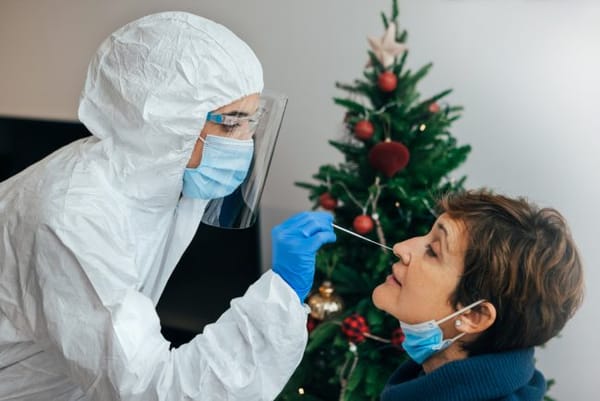The lessons in a COVID Christmas
It seems that COVID-19 has delivered us yet another unwelcome surprise as we farewell 2021. As end-of-year functions get cancelled and workplaces look to minimise the dislocation from the rising positive cases, organisations will need to consider the approach they will take in the new year to manage the spread of the Omicron variant.
One point is clear: although formal lockdowns may not be mandated going forward, the first half of 2022 will result in a ‘slow down’ of businesses as they try to manage the interruption caused by significantly more staff, customers and their families becoming ill and incapacitated from the virus.
For those businesses that have remained open or have recently tried to return staff to the workplace, the question will be: what controls will you put in place at your workplace? At present, a common approach is to require staff who have symptoms to stay at home and, where possible, for social distancing to be maintained in the workplace. This approach has been supported by the use of masks, increased hygiene and a requirement, subject to health orders, to only allow vaccinated people in the office.
But should more controls be implemented? The availability of rapid antigen testing offers business a relatively inexpensive and quick tool to determine the likelihood of any attendee at the workplace having COVID-19, far more than temperature testing or administrative controls such as staff self-assessing symptoms.
According to NSW Health, rapid antigen testing involves taking either a saliva sample or nasal swab that is placed into a chemical solution that can detect, reasonably accurately, the presence of the virus within 10 to 15 minutes. The use of these tests, which can be self-administered, are a useful tool for quickly ruling out anyone who may be likely to have the virus, without requiring the implementation of more time-consuming PCR tests.
PCR tests, which stands for polymerase chain reaction testing, is an accurate diagnostic tool of the virus. Unlike rapid antigen testing, PCR takes a segment of DNA from the sample, which may contain the COVID-19 virus, and synthesises new copies of the DNA to allow easier detection. In layman’s terms, rather than looking for a needle in the haystack with rapid antigen testing, you multiply the needle a billion times so its presence is easier and more accurately able to be confirmed.
So, what should your business do? Where government restrictions have been eased, should you require all staff to be fully vaccinated and have regular PCR or rapid antigen tests before coming into the office, when the safety regulator and health authorities are not mandating that approach? The answer to this question will largely depend on the appetite for risk in your organisation and the ability to implement these controls within your workforce.
The recent BHP Mt Arthur Coal Mine case in the Fair Work Commission does make clear the importance of consulting with your workforce on issues relating to COVID-19 policies. In that case, the employer was implementing a mandatory vaccination policy but failed to consult in accordance with its work health and safety obligations. The same principles apply to the introduction of a requirement for testing and consultation is important. You can find out about your consultation obligations in the Health & Safety Handbook chapter Consultation.
There is certainly a lot to still consider and try to anticipate what next year might bring in our response to COVID-19. But importantly, with the holiday season here, it’s time to rest and recuperate so that when we come back to work in 2022, we will be doing it refreshed and focused on making it as safe as possible.
From the experts behind the Health & Safety Handbook, the Bulletin brings you the latest work health and safety news, legal updates, case law and practical advice straight to your inbox every week.

